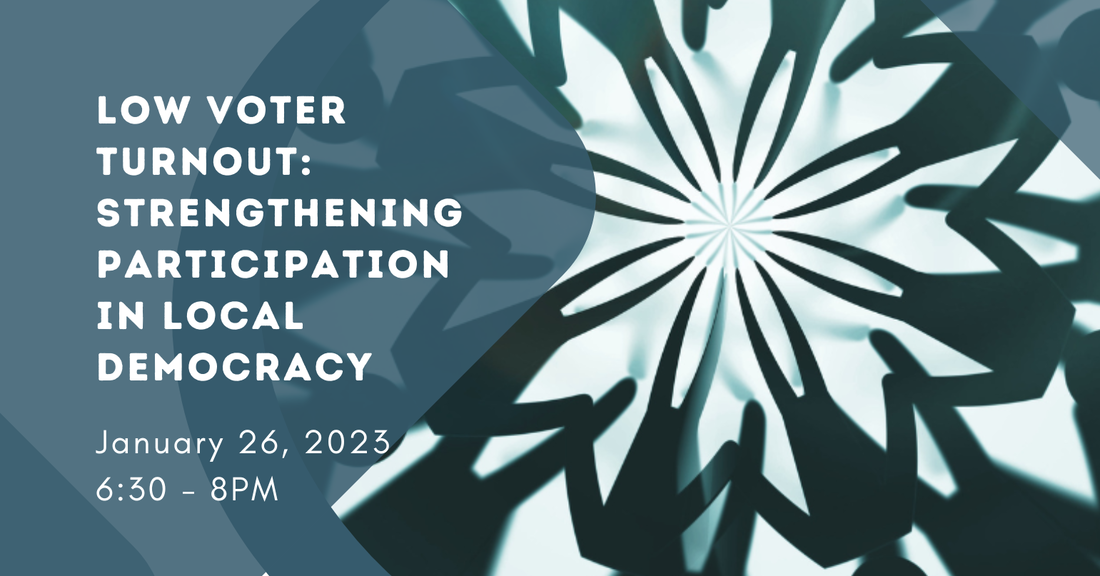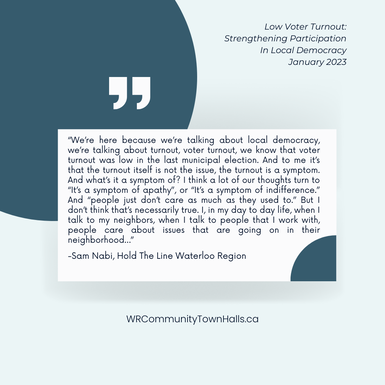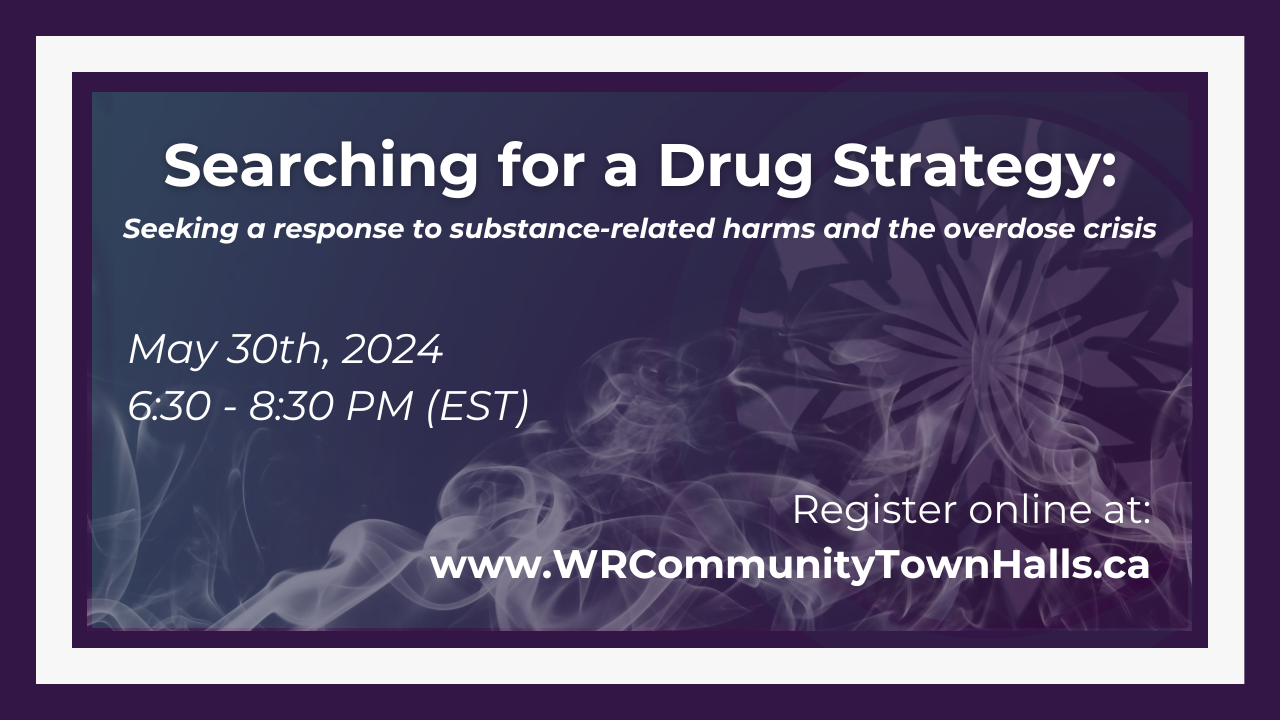Sam Nabi
|
Preview Clip (Below)
Sam Nabi introduces the audience to some examples of community-building work in parallel to voting and election. His first example is Hold the Line Waterloo Region, including participatory events and advocacy on issues of urban sprawl in Waterloo. Following this, he related efforts to convert Gaukel St in Kitchener to a pedestrian-focused space. The lessons from these grassroots efforts give inspiration for how to build a coalition of engaged and active residents. |
Canadian voter turnout has been in a long decline since at least the 1960s. In a span of 13 months, Federal, Provincial, and Regional elections occurred in our region with turnouts of 62%, 45%, and 25% respectively. While elections and voting are not the only way to engage with government, the decline is undeniable and we should examine the reasons behind it and the future consequences should it remain low. Our speakers will look at turnout from academic and practical perspectives, applying their years of experience, and engaging with the audience.
Full Presentation Video (Below)
|
About Sam Nabi
Sam Nabi (he/him) is a co-owner of Full Circle Foods and member of Hold The Line Waterloo Region an organization that educates people about preserving our countryside while encouraging growth in livable downtown neighbourhoods. Hold The Line has organized festivals bringing together musicians, cyclists, foodies, and environmentalists on local farms. Sam also championed the pedestrianization of Gaukel Street in downtown Kitchener, by bringing together artists, businesses, and neighbours to advocate to city council.
You can find Sam on Twitter (for now), Mastodon, or at your local DIY music show.
You can find Sam on Twitter (for now), Mastodon, or at your local DIY music show.
“We’re here because we’re talking about local democracy, we’re talking about turnout, voter turnout, we know that voter turnout was low in the last municipal election. And to me it’s that the turnout itself is not the issue, the turnout is a symptom. And what’s it a symptom of? I think a lot of our thoughts turn to “It’s a symptom of apathy”, or “It’s a symptom of indifference.” And “people just don’t care as much as they used to.” But I don’t think that’s necessarily true. I, in my day to day life, when I talk to my neighbors, when I talk to people that I work with, people care about issues that are going on in their neighborhood…” - Sam Nabi, Hold The Line Waterloo Region
|




